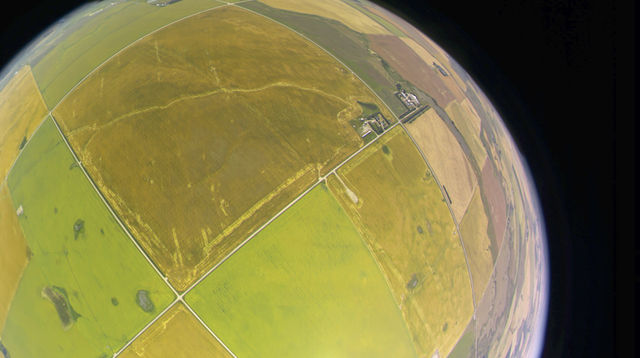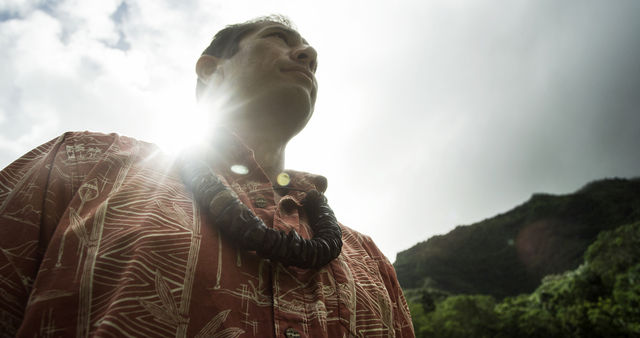Since the ancient days of Hawaii, island people have treasured the concept of malama aina. That concept will be displayed through the new film, “Aina: That Which Feeds Us.” “I think they did a really good job of talking about
Since the ancient days of Hawaii, island people have treasured the concept of malama aina. That concept will be displayed through the new film, “Aina: That Which Feeds Us.”
“I think they did a really good job of talking about the importance of the land to all of us,” Aina storyteller Sabra Kauka said. “It’s a documentary and it’s brief but it says a lot of important things.”
The environmentally conscious movie directed by Josh Thome comes from the perspective of Kauai’s people and speaks about the representations of two extreme versions of agriculture on Kauai.
The first is the traditional Hawaiian ecological system and the second is companies’ use of pesticides on genetically modified crops.
Executive Director for the Hawaii Crop Improvement Association Bennette Misalucha released a commentary in regards to the upcoming film.
“Obviously I’ve not see the movie but after seeing the trailer my fear is that the film is full of a historic nostalgia that provides no real solution for feeding our population, expected to double by 2050, and generates misinformed fears about modern farming,” Misalucha said.
Misalucha wrote that pesticides are the most tested and thoroughly reviewed chemicals in the world and are regulated by the United States Environmental Protection Agency.
“Pesticides are an essential tool for keeping our food free of insects and diseases; they help protect Hawaii from invasive species that would destroy not just our ag. industry, but our homes, our native species, and ultimately our economy,” Misalucha said.
Local taro farmer and aquatic biologist Don Heacock doesn’t believe in the use of pesticides and views them as a dangerous resource.
“It’s unnecessary. It’s damaging to our public and to our environment,” he said. “It is a superstition that you have to use pesticides. In farming systems, biodiversity equals stability. If you’re growing lots of crops these systems become very stable.”
The documentary uses the issues facing Kauai as a microcosm, linking them to the global crossroads facing agriculture.
“Quite literally, aina means ‘that which feeds us,’” Kauka said. “This is real life. This is who we are, what we believe.”
Kauka is looking forward to the film’s debut.
“First of all, they have some beautiful footage in it and secondly, I think the thoughts of the people that are interviewed in the movie, and beyond myself, are timely, pertinent and valuable,” she said. “I think we need to be a lot more aware of what we’re doing to the Earth and all the species that live on the Earth.”
Misalucha said HCIA’s goal is to provide facts regarding the use of pesticides and it will continue to expedite respectful, fact-based conversations about their use.
“It is to the benefit of all users of pesticide products to utilize these tools through safe practices as stated on the label,” Misalucha said.
Aina will be shown at Kauai Community College’s Performing Arts Center at 7 p.m. Saturday. It will be followed by a panel with the director, film producers and individuals who appeared in the movie.
There will also be a live musical performance by the The Waipa Serenaders and other special guests.
Tickets are $10. It is is free for children 5 years and under. Tickets may be purchased at eventbrite.com.
“I hope they go away with a deeper appreciation of the island that we live on and the finite resources of the island and of the Earth,” Kauka said. “We need to raise consciousness and that’s what this movie does.”




